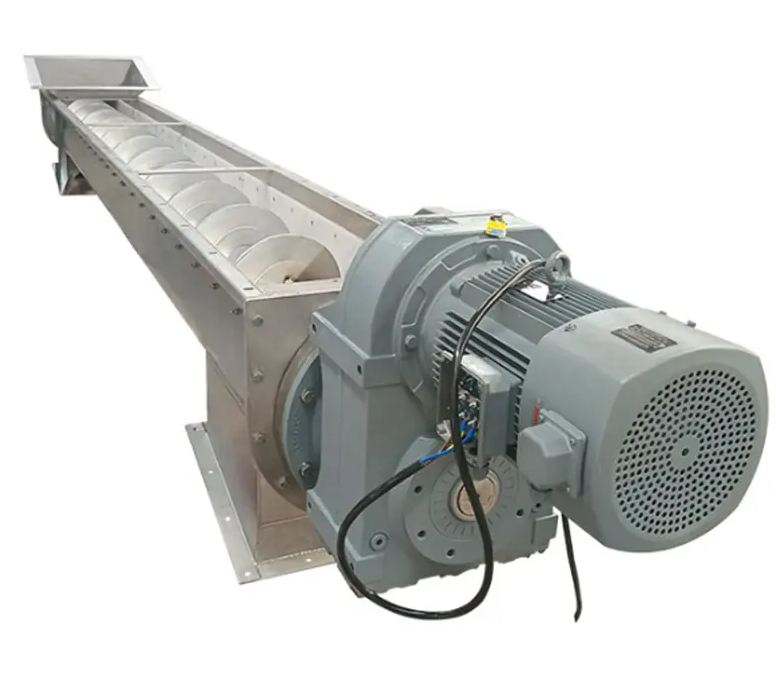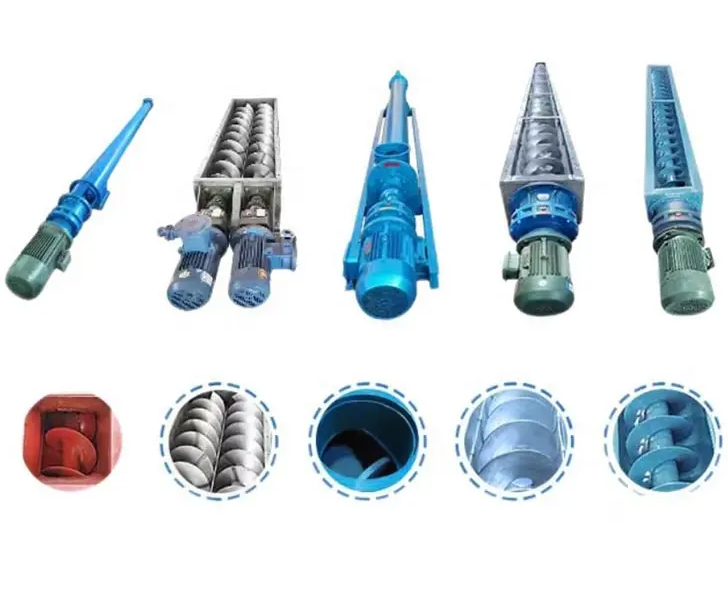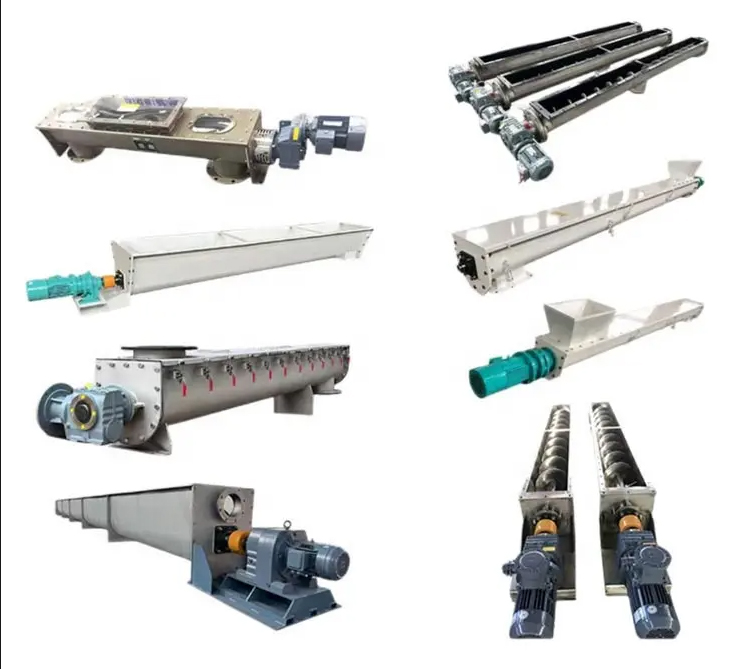Screw conveyors are commonly used in clay handling and processing because of their ability to efficiently move, mix and transport the material.

Clay Transportation: Screw conveyors are used to transport clay from one location to another within a production facility. They can transfer clay from storage silos to processing equipment, or from one stage of processing to another. Screw conveyors are ideal for this type of application because they can move material vertically or horizontally and can be designed to fit into tight spaces.
Clay Mixing: Clay often needs to be mixed with other materials to create a specific mixture. Screw conveyors can be used to mix clay with other materials such as water, sand or chemicals, the conveyor moves the materials during the mixing process ensuring they are thoroughly mixed.
Clay Drying: Wet clay must be dried before it can be used in the production process. Screw conveyors can move wet clay through a drying system, such as a rotary dryer or fluid bed dryer, and the conveyor moves the clay during the drying process, ensuring that it dries evenly.
Clay Extrusion: A screw conveyor can shape clay into specific products by conveying it through an extruder, which is often used to make bricks, tiles, and other building materials. A conveyor belt moves the clay through the extruder, ensuring it is in the correct shape.
Clay Waste Removal: Screw conveyors can be used to remove waste from clay, the conveyor removes the waste from the clay, ensuring a high quality final product.

Screw conveyors offer several advantages for handling clay, making them a popular choice for the clay industry. Here are some of the key advantages of using screw conveyors for clay:
Versatility: Screw conveyors can handle a wide range of materials, including wet and dry clay, making them a versatile option for the clay industry.
Efficient: Screw conveyors are an efficient way to move clay from one location to another. They can move materials horizontally or vertically, and the screw design ensures that the clay is moved consistently and evenly.
Cost-effective: Screw conveyors are a cost-effective option for transporting clay. They are relatively inexpensive to install and maintain, and they require minimal energy to operate.
Customizable: Screw conveyors can be customized to meet the specific needs of the clay industry. They can be designed to handle different types of clay, different volumes of material, and different layouts and configurations.
Safety: Screw conveyors are designed with safety in mind. They have guards and covers to prevent operators from coming into contact with moving parts, and they are built to meet all relevant safety standards.
Customizing a screw conveyor for clay requires consideration of several factors to ensure that the conveyor is efficient, reliable, and cost-effective. Here are some factors to consider when customizing a screw conveyor for clay:
Material characteristics: The properties of the clay being transported will affect the design of the conveyor. For example, wet clay will require a different type of conveyor than dry clay. The moisture content, particle size, and consistency of the clay will all need to be taken into account.
Conveyor capacity: The amount of clay that needs to be transported will determine the size and capacity of the conveyor. The conveyor must be able to handle the required volume of clay without causing blockages or other problems.
Conveyor length and layout: The distance that the clay needs to be transported will affect the length and layout of the conveyor. The conveyor must be designed to fit into the available space and to minimize the number of bends and transitions.
Operating environment: The operating environment will affect the materials used to construct the conveyor. For example, if the conveyor will be exposed to high temperatures or corrosive materials, it may need to be made from special materials.
Maintenance requirements: The design of the conveyor should make it easy to access and maintain. This will reduce downtime and increase the lifespan of the conveyor.
Safety considerations: Safety should always be a top priority when designing and customizing a screw conveyor. The conveyor should be designed to minimize the risk of injury to operators and to meet all relevant safety standards.

Overall, screw conveyors are a versatile and efficient tool for handling clay. They can be customized to meet specific requirements and can be used in a range of applications, from mixing and drying to transportation and waste removal.
Address:China,Yanjin county forest park gate to the west 1000 meters north road.